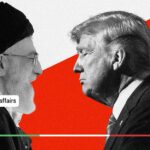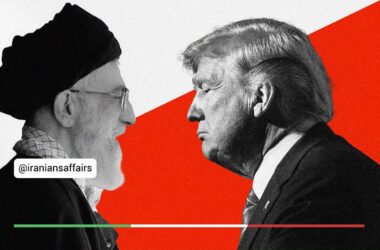Although the gateway to the “New Order” in the Middle East was opened through Israel, the region’s key players will never remain mere spectators in these transformations.
Turkey: An Active Player
Following the collapse of the Ottoman Empire after World War I and the subsequent power vacuum, the idea of an independent Kurdistan was first proposed in the Treaty of Sèvres. However, this treaty was never implemented and was replaced by the Treaty of Lausanne, which recognized the modern borders of Turkey after resistance from nationalist forces led by Mustafa Kemal Atatürk.
The borders of newly established countries such as Syria, Iraq, Jordan, and even Turkey were drawn based on access to resources and logistical capacities of the victorious nations, ignoring many geographical and historical factors.
Kurds who had lived cohesively under the Ottoman Empire for centuries were suddenly divided among Turkey, Syria, and Iraq after World War I. While the continuation of the Zagros mountain range along the Turkey-Iraq border solidified this division, the lower elevations at the Turkey-Syria border made it difficult to maintain control over Kurdish populations across both nations.
The Kurdistan Workers’ Party (PKK) was founded in the latter half of the 1970s, during a period known as “political instability in Turkey” and amid heightened Soviet interventions in its southern borders. As an ally of the U.S. and a NATO member, Turkey played a crucial role in countering Soviet influence. In response, the USSR sought to destabilize both Iran and Turkey by supporting separatist and guerrilla groups.
While the Soviet strategy succeeded in toppling Iran’s pro-American government during the Carter administration, Turkey decisively cracked down on the nascent communist-separatist PKK movement. Within a year of its formation, the PKK’s leader fled to Syria, becoming a tool in the hands of Hafez al-Assad.
Fantasy of an independent Kurdistan crumbled under repeated defeats, culminating in PKK leader Abdullah Öcalan’s four-month-long exile in Europe, a week-long stay at a Russian airport seeking entry clearance, and finally, his arrest and extradition from Kenya to Turkey.
From the outset, Kurdish independence was incompatible with the historical and geographical realities of the region. Had this been understood earlier—perhaps by learning from the experience of the short-lived Republic of Mahabad—the Kurdish issue might have been resolved more effectively within Turkey’s economic development, enabling Kurdish regions to benefit more from tourism and industrial growth.
By proactively addressing the PKK issue domestically and leveraging its considerable influence in Syria, Turkey is now well-positioned to manage cross-border Kurdish movements. Given the close political ties between Mazloum Abdi, commander of the Syrian Democratic Forces (SDF), and Öcalan, Turkey has a strategic opportunity to prevent Kurdish autonomy in Syria.
Additionally, by opening economic channels with Iraqi Kurdistan—whose ability to sell oil has been severely restricted—Ankara gains leverage over the Kurdish regional government. With Iraq’s central government resisting further Kurdish autonomy, the Kirkuk-Ceyhan pipeline remains the only viable export route for Barzani’s administration following the reinstatement of U.S. sanctions on Iran.
Saudi Arabia: A Cautious but Influential Player
After World War I, the Kingdom of Saudi Arabia was established through the unification of various tribes under King Abdulaziz.
Saudi Arabia’s hosting of high-level discussions on Ukraine signifies its evolving geopolitical role as a facilitator of complex international dialogues. In a historic shift, 52% of the kingdom’s GDP now comes from non-oil activities revenues. Meanwhile, the presence of international figures and culturally unprecedented festivals highlights elite-driven cultural transformations.
Minister of Economy and Planning Faisal Al-Ibrahim recently stated: “We want to be in the middle.” This reflects Saudi Arabia’s strategy of maintaining strong partnerships with all major stakeholders. A diplomatic result of this strategy has been Riyadh’s ability to host high-level U.S.-Russia negotiations on the Ukraine war.
Shortly after Donald Trump took office, Mohammed bin Salman pledged a $600 billion investment in the U.S. This was followed by a Saudi sovereign wealth fund summit in Miami, where president Trump, questioning Saudi Arabia’s role in the 9/11 attacks, bluntly stated that as long as Riyadh continues investing in the U.S., it will enjoy American support.
Iranians still remember how, after Ronald Reagan’s election in 1984 —just few years after losing Iran as a strategic Western ally—Saudi Arabia emerged as the key regional partner in countering Soviet aggression in Afghanistan, Yemen, and Latin America. Weapons once manufactured for the Iranian monarchy soon found their way to the Arabian Peninsula, financed by Saudi petrodollars.
In the emerging new order, Saudi Arabia strives to remain a central player by balancing its traditional alliance with the West while pursuing domestic reforms and regional diplomacy. While its international diplomacy is built on balancing relations between East and West, Riyadh’s main regional challenge remains preserving its current status. Its strategy heavily depends on continued instability in Iran, and using that to promote its own position in the region.
However, in the long run, Saudi Arabia’s Vision 2030—aimed at building a multicultural, modern economy—faces an inherent risk if Iran remains isolated. Unfounded initiatives, such as supporting groups like the Mujahedin-e Khalq (MEK), minority separatist in Iran are not viable. Especially when there is a modern nationalist movement has been gaining momentum in the country in recent years.
Ultimately, while Israel holds a unique position in the Middle East’s new order through the Abraham Accords, recent events following the October 7 attacks indicate that without resolving the Iranian issue, existing agreements alone cannot fully establish a new modernist order based on nation-states. This vision remains incomplete without the presence of the region’s first nation-state—Iran.
*Diaco Giv – Member of ThinkTank of Iranian Affairs







